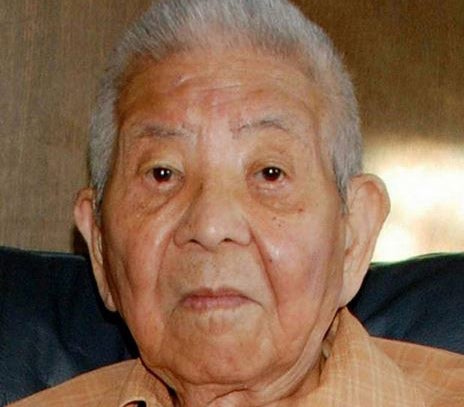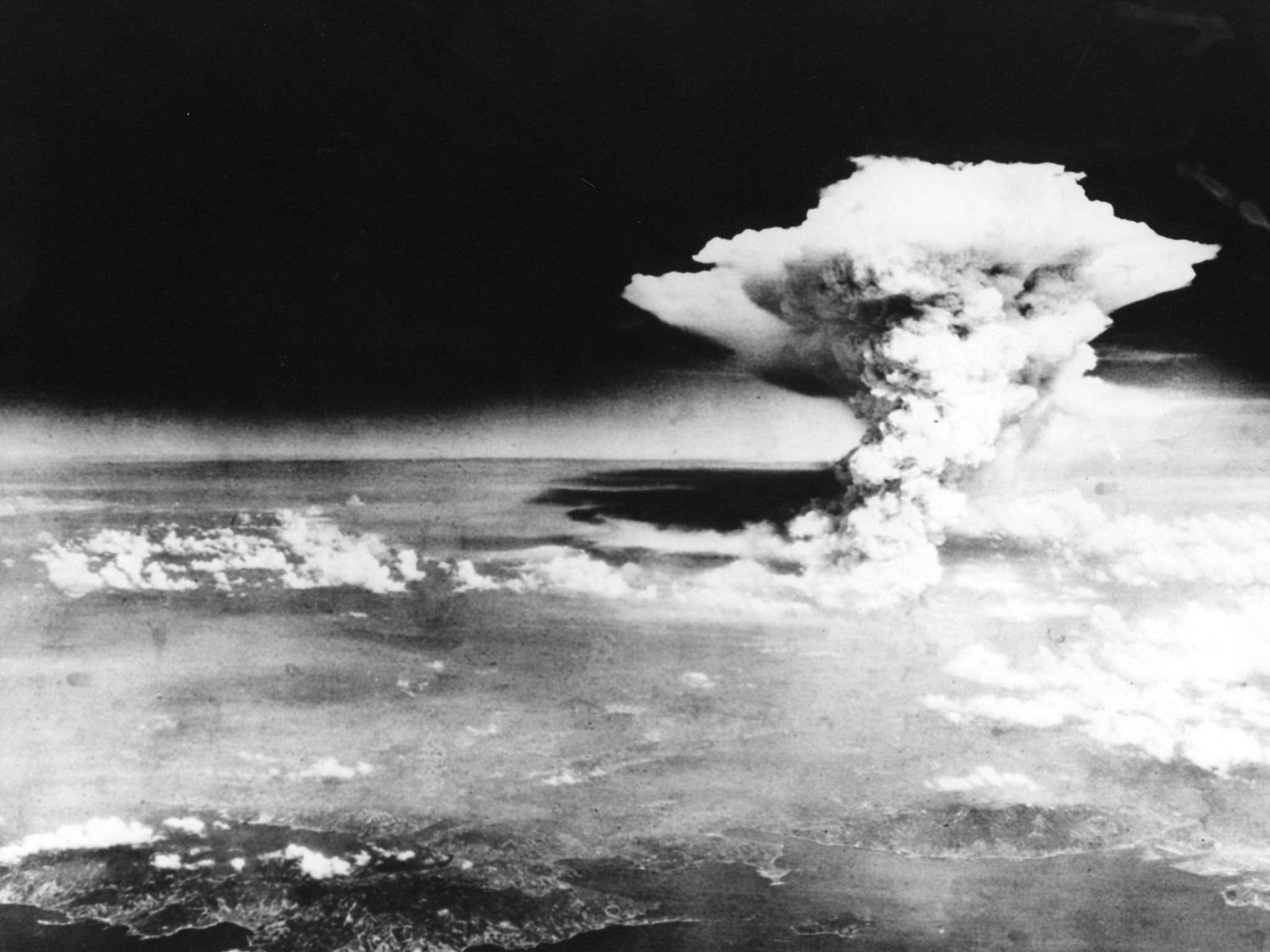Nagasaki anniversary: Tsutomu Yamaguchi, the man who survived both Hiroshima and Nagasaki
'It can tell the younger generation the horrifying history of the atomic bombings even after I die'

Your support helps us to tell the story
From reproductive rights to climate change to Big Tech, The Independent is on the ground when the story is developing. Whether it's investigating the financials of Elon Musk's pro-Trump PAC or producing our latest documentary, 'The A Word', which shines a light on the American women fighting for reproductive rights, we know how important it is to parse out the facts from the messaging.
At such a critical moment in US history, we need reporters on the ground. Your donation allows us to keep sending journalists to speak to both sides of the story.
The Independent is trusted by Americans across the entire political spectrum. And unlike many other quality news outlets, we choose not to lock Americans out of our reporting and analysis with paywalls. We believe quality journalism should be available to everyone, paid for by those who can afford it.
Your support makes all the difference.On the 70th anniversary of the nuclear bombing of Nagasaki, Prime Minister Shinzo Abe's move to change the country's pacifist policy has come under fire.
In his address at a ceremony in the city, Abe said Japan is "determined to pursue a world without nuclear weapons."
Nagasaki Mayor said there is "widespread unease" about Abe's loosening of military restrictions, and survivors - including 86-year-old Sumiteru Taniguchi - have said they could not abide the new legislation.
Which brings us to Tsutomu Yamaguchi, the only Japanese man to officially survive the atomic bombings of both Hiroshima and Nagasaki, and who in later life became a vocal advocate for nuclear disarmement.
The day the A-bomb was dropped on Hiroshima was meant to be Yamaguchi's last day in the city — kind of like how police officers in the movies are just one day from retirement when disaster strikes.
The 29-year old had been on a three-month assignment for Mitsubishi Heavy Industries, and was eagerly awaiting a return to his wife Hisako and their son Katsutoshi.
But something happened at 8:15 on the morning of August 6, 1945. When a US B-29 bomber launched the world's first ever nuclear attack, the sky burst into a light like that "of a huge magnesium flare".

Yamaguchi, who was less than two miles from that actual explosion, was severely burned, temporarily blinded, and rendered permanently deaf in his left ear. He was lifted from the ditch in which he had dived and thrown into a nearby potato patch.
He later told The Times: "I didn't know what had happened. I think I fainted for a while. When I opened my eyes, everything was dark, and I couldn't see much. It was like the start of a film at the cinema, before the picture has begun when the blank frames are just flashing up without any sound."
Somehow the city's train station was still operating. He and two colleagues spent one last night in the ruined city before making their way home. Bridges had been ripped to shreds, and so Yamaguchi had to swim across a river filled with dead bodies.
But he made it home. To Nagasaki. By then, the whole world knew what had happened at Hiroshima — 80,000 killed instantly, tens of thousands dying as US President Harry Truman announced his intention to end World War II by "harnessing the basic power of the universe".
His friends could not recognise him, such were his injuries and his trauma. His mother thought he was a ghost. But still he persisted, and somehow made it his Mitsubishi office three days after enduring the horror of Hiroshima.
At around 11 in the morning on August 9, as he recounted to a company director just what had happened, the next bomb was dropped.
"I thought the mushroom cloud had followed me from Hiroshima," he told The Independent back in 2009.
Though this atomic bomb was more powerful than the last, Yamaguchi was not badly hurt. His wife and son also survived the attack, but their home was destroyed.
Though he suffered from severe radiation poisoning that would last years, Yamaguchi would live until he was 93, dying in 2010 of cancer.
In his later years, he would talk publicly about his experiences, and advocated for nuclear disarmament.
In 2006, standing before the United Nations, he said: "Having experienced atomic bombings twice and survived, it is my destiny to talk about it."
He told The Independent. "After I die, I want the next generation of hibakusha and the children after that to know what happened to us."
Though there are thought to be 165 survivors of both bombings, Yamaguchi is the only one to be recognised as such by the Japanese government — only in 2009.
He told the Mainichi newspaper in the last year of his life: "My double radiation exposure is now an official government record. It can tell the younger generation the horrifying history of the atomic bombings even after I die. I could have died on either of those two days. Everything that follows is a bonus."
Join our commenting forum
Join thought-provoking conversations, follow other Independent readers and see their replies
Comments